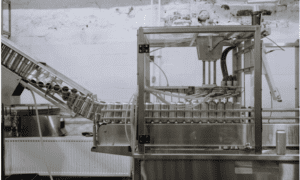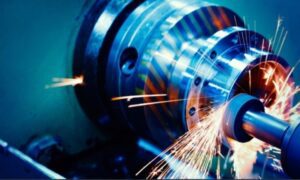In today’s fast-paced world, precision is everything. From complex automotive components to intricate medical devices, industries worldwide rely on precision machining to transform their designs into reality. This advanced manufacturing technique has emerged as a game-changer, revolutionizing multiple sectors by offering unmatched accuracy, enhanced productivity, and superior quality.
In this blog post, we will learn more about how precision machining is transforming various industries and paving the way for groundbreaking innovations.
The Rise of Precision Machining
Precision machining has come a long way since its inception. With advancements in computer numerical control (CNC) technology, the precision machining process has become increasingly automated, precise, and efficient. Today, high-tech CNC machines equipped with state-of-the-art software can fabricate intricate components with minimal human intervention, significantly reducing errors and increasing productivity. The integration of precision machining in the manufacturing workflow has revolutionized the way industries produce their goods.
Automotive Industry: Driving Innovation with Precision Machining
The automotive industry has been one of the primary beneficiaries of precision machining. From engine components to transmission parts, precision machining ensures that every piece fits together seamlessly. The accuracy and repeatability offered by CNC machines allow automotive manufacturers to produce parts with tight tolerances, leading to improved performance, reduced wear and tear, and increased fuel efficiency.
Precision machining has also enabled the development of lightweight materials, such as aluminum alloys and carbon fiber composites, contributing to the industry’s ongoing quest for more eco-friendly vehicles. Furthermore, the precise manufacturing of safety-critical components, such as braking systems and airbags, ensures the highest levels of passenger safety.
Healthcare Sector: Empowering Medical Breakthroughs
In the healthcare sector, precision machining has revolutionized the production of medical devices and implants. From surgical instruments to prosthetics and orthopedic implants, precision machining plays a vital role in ensuring precise fit, biocompatibility, and durability. By leveraging CNC technology, medical device manufacturers can create complex geometries and intricate features, enabling breakthroughs in minimally invasive surgeries, personalized implants, and advanced prosthetics.
Precision machining has not only improved patient outcomes but also accelerated the pace of medical innovation, allowing for faster and more precise diagnostics, improved treatment options, and enhanced patient care.
Aerospace and Defense: Taking Flight with Precision
Aerospace and defense industries demand the utmost precision and reliability. With precision machining, manufacturers can meet the stringent requirements of these sectors. From aircraft engine components to missile guidance systems, precision machining guarantees the accuracy needed for safe and efficient operations.
Moreover, the use of advanced materials, such as titanium and composites, in aerospace and defense applications necessitates the precision and expertise that precision machining brings to the table. By delivering flawless parts, precision machining enables the development of cutting-edge aircraft, spacecraft, and defense systems, ensuring national security and pushing the boundaries of exploration.
Electronics and Telecommunications: Advancing Connectivity
The electronics and telecommunications sectors thrive on miniaturization and high-performance components. Precision machining plays a pivotal role in manufacturing microelectronics, printed circuit boards (PCBs), and other intricate parts. By employing CNC machines, manufacturers can produce tiny, complex components with tight tolerances, facilitating the miniaturization of electronic devices. Precision machining also ensures the reliability and longevity of connectors, switches, and antenna systems critical to telecommunications infrastructure. The relentless pursuit of faster, smaller, and more powerful electronic devices is made possible through precision machining, enabling seamless connectivity, cutting-edge computing, and innovative consumer electronics.
Energy and Renewable Resources: Driving Sustainability
As the world transitions towards cleaner energy sources, precision machining has become indispensable in the energy sector. Whether it’s manufacturing wind turbine components, solar panels, or precision-engineered parts for nuclear power plants, precision machining enables the production of energy systems that are efficient, reliable, and environmentally friendly. With precision machining, renewable energy technologies can reach new heights of productivity, contributing to a sustainable future. Furthermore, precision machining plays a crucial role in the development of energy storage systems, such as batteries and fuel cells, supporting the growth of electric vehicles and portable electronics.
Precision machining is ushering in a new era of accuracy, efficiency, and innovation across various industries. From automotive advancements to healthcare breakthroughs, aerospace feats to electronics evolution, precision machining empowers manufacturers to push boundaries and deliver superior products. As technology continues to advance, precision machining will remain at the forefront, propelling industries towards unprecedented achievements and transforming the world we live in. Embracing precision machining is not just a necessity but a strategic advantage for any industry that seeks to thrive in an increasingly competitive landscape. By harnessing the power of precision machining, industries can unlock a world of possibilities and shape the future of innovation.



































